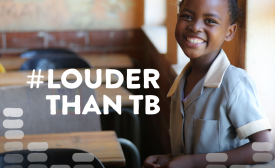global health diplomacy

Tara Ornstein writes that triumphant messages about people who overcame tuberculosis is effective global health diplomacy.

Beyond reactionary health measures, what else can be done to prevent future outbreaks of deadly diseases?

Russia’s position as a high-burden country for tuberculosis makes its global health diplomacy efforts all the more important.
Former Ethiopian health minister Dr Tedros Adhanom Ghebreyesus has been chosen as the director-general of the World Health Organization (WHO). He was nominated by the government of Ethiopia and elected by the WHO member states to begin his five-year term as director-general on 1 July 2017. He succeeds Hong Kong’s Dr Margaret Chan, who has held the position since 2007. [...] His successes with these two organisations included securing increased funding to fight life-threatening diseases in Africa.
A conference, organized by several non-governmental organizations to review the current state of national and international efforts to assist in rebuilding the healthcare delivery systems, environment management, and develop emergency preparedness in countries of the Mano River Union (MRU) worst affected by the Ebola epidemic.
Tomorrow is the start of the Sixth Tokyo International Conference on African Development (TICAD) in Nairobi, Kenya. Launched in 1993, TICAD is the key platform to drive Japan’s ongoing development initiatives in Africa. TICAD respects African ownership of its own development path, while tapping into multi-stakeholder partnerships to promote openness.
No one at the high-level United Nations conference devoted to ending the AIDS epidemic by 2030 denies serious scientific and financial challenges remain, but cultural sensitivities may prove the toughest stumbling block on the way to achieving that goal.

Tara Ornstein analyzes a public diplomacy campaign to conquer TB.







